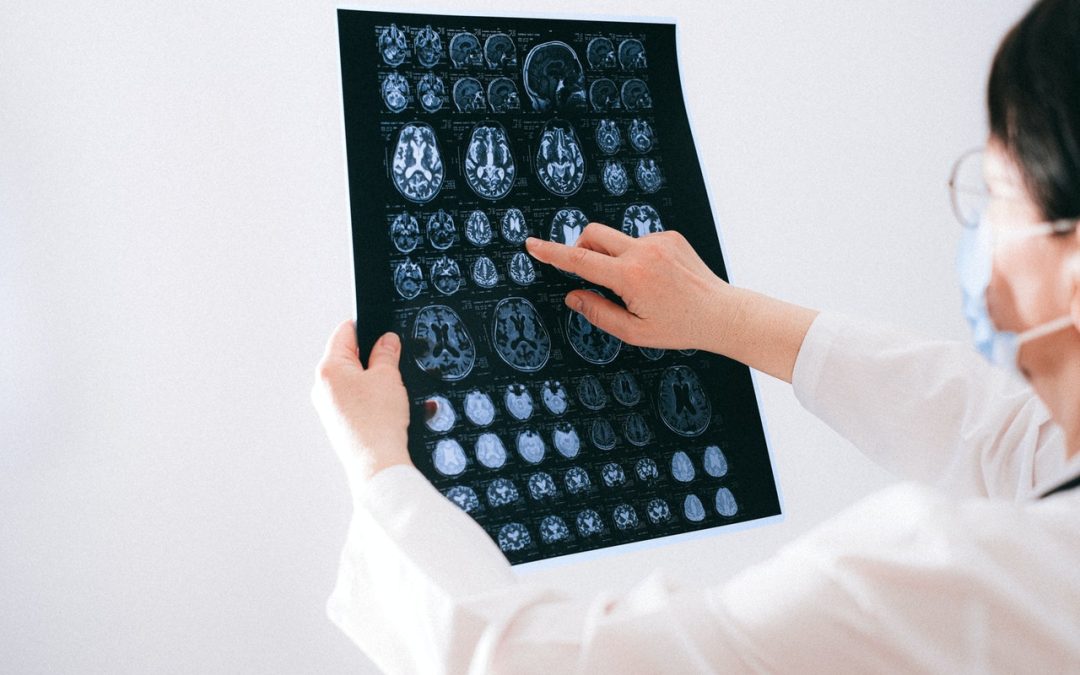- Here is an interesting study by Mantyla et al (2007). Ever notice how some individuals have difficulty following through with tasks if there is too much time delay between getting the “instructions” and the time frame in which the task is to be completed. This important skill depends upon timing in the brain. For example, a friend may call and say “In 30 minutes, Jane, meet me in the lobby of your apartment building. I will be waiting there to drive you to your doctor appointment.” …tick…tick….tick… The brain relies upon an internal network of structures that work in synchrony to keep time. Individuals have the ability to estimate time in their head and are usually pretty accurate, so this would not be too tall an order for some. However, if this “internal clock network” is out of sync due to developmental disorder (ADHD, Dyslexia) or injury (Traumatic Brain Injury, Stroke), then the individual will be more prone to distraction and forgetting, being late, or appearing as though (s)he has difficulty remembering or following directions!! This individual will also tend to rely much more heavily on looking at a clock to keep track of time (an external timing source) to make up for what the brain is unable to do on its own. It’s all a matter of timing! Interactive Metronome® training is an effective method for training or retraining the brain to keep time. Once areas of the brain for timing are communicating with one another again in a synchronized fashion, individuals often show significant improvement in time management, organization skills like planning, anticipating, and sequencing, memory, and ability to follow directions.
Mantyla, T., Carelli, M.G., and Forman, H. (2007). Time monitoring and executive functioning in children and adults. Journal of Experimental Child Psychology, 96, 1-19.
- The front portion of the brain, or frontal lobes, are particularly vulnerable to damage during accidents.
Individuals with traumatic brain injury frequently have what is called a “frontal lobe injury.” This is
significant because this area of the brain is responsible for so many important skills for successful community reintegration: our personality and mood, our ability to plan and organize events, to manage and monitor time, to focus our attention and problem-solve, to sequence and coordinate motor movements, and the list goes on and on. These skills also all depend upon timing in the brain, timing for when to say something or when to keep silent, for anticipating the amount of time it will take to accomplish a task or to get somewhere, for knowing how much time you’ve just spent on a project, or the minute neural timing that we don’t think about at all when we move our arm to pick up a glass of water. Scientists have discovered that the frontal lobes, in particular the middle and right side, are responsible for so many of our skills that depend upon timing (Pictno et al, 2006). We often see impairment in the above-listed time-dependent skills due to damage to this part of the brain following traumatic brain injury. Many traditional therapies focus on teaching the person with traumatic brain injury to “compensate” for deficits in attention, organization, planning, problem-solving, and coordination. Interactive Metronome (IM) training, however, offers hope for recovery by addressing the underlying problem in “frontal lobe injuries,” a problem with timing in the brain, thereby improving cognitive, behavioral, and motor skills.
Pictno, T.W., Stuss, D.T., Shallice, T., Alexander, M.P., and Gillingham, S. (2006). Keeping time: Effects of focal frontal lesions. Neuropsychologia, 44, 1195-1209.
- We all have an “internal clock” that governs how quickly our brain can register and interpret information
(cognitive speed), our ability to stay focused and pay attention, to sort through information and key in on what is important, to hold bits of important information in memory, and to recall information after minutes or hours or days (conversations, whether medications were taken or not, where the car is parked). Scientists think the “internal clock” begins to slow down as we age and that it continues to slow down the older we get. This, in turn, negatively affects a person’s mental speed and sharpness, ability to focus and attend especially when there is a lot going on at the same time, and to remember daily events and interactions (i.e., “senior moments”). In this interesting study, Pouthas and Perbal (2004) show that this IS indeed the case. The brain’s clock DOES slow down more and more as we age. Interactive Metronome® is a mental fitness program that helps to restore the brain’s “clock speed.” It involves the completion of simple & engaging exercises that encourage the body to move to a steady beat while receiving feedback for timing. This feedback promotes faster, more synchronized timing in the brain and thus faster thinking or cognitive speed, better focus, and memory.
Pouthas, V. and Perbal, S. (2004). Time perception depends on accurate clock mechanisms as well as unimpaired attention and memory processes. Acta Neurobiologiae Experimentalis, 64, 367-385.
- This study by Palladino et al (2003) helps us understand the vital role of working memory and how timing is the key to brain fitness! Think of working memory as the “gait-keeper” for information that comes into the brain… it is responsible for sorting through it all, keeping ONLY what is important to the task at hand, discarding all the rest. Working memory is very “active.” It continually updates the information it holds as newer, more relevant information becomes available, like saving over an older file in the computer. If this “gait-keeping mechanism” fails to do its job and lets too much information in, then the whole system gets bogged down with TOO MUCH INFORMATION!! It then works very inefficiently. Welcome to the brain of a person with ADHD or Traumatic Brain Injury! Working memory controls many aspects of thinking like how fast we process information (thinking speed), how well we focus and concentrate (attention), and how well we remember and learn (memory). For all of these cognitive processes to work smoothly, the brain must be able to sort through information first and foremost and tune out distractions!! Researchers consistently find that working memory relies upon precise timing in the brain to perform this sorting job. If timing in the brain is disrupted (or the network of brain structures involved in mental timing are not working in sync with one another), problems with thinking speed, attention, and memory or learning result. The Interactive Metronome® (IM) is a training program that both measures and improves timing in the brain through structured exercises performed to a steady beat. A patented visual-auditory guidance system helps the individual gradually improve his/her timing skills and thus the mental skills that depend upon timing in the brain: working memory, cognitive speed, attention, and memory.
Palladino, P., Mammarella, N., and Vecchia, T. (2003). Modality-specific effects in inhibitory mechanisms: The interaction of peripheral and central components in working memory. Brain and Cognition, 53, 263-267.
- Timing in the brain is essential for us to anticipate how much time it will take to complete a task or to go back and figure out how much time it took to complete at task, after the fact (Zakay & Block, 2004). In many conditions (i.e., ADHD and Traumatic Brain Injury), the ability to “manage” time is impaired because the underlying process of timing in the brain is disrupted. Scientists have devoted much effort to studying the brain’s clock, finding that MANY areas of the brain are involved, and that each must work in a synchronized fashion with one another to get the job done. The connections between these areas of the brain can be likened to the internet with some individuals having older, slower dial-up connections versus newer, faster high-speed cable connections. Try downloading a document (or think of trying to recall something from memory) with dial-up versus high-speed cable!! Which person do you think will be able to keep up with the pace of the world around him, to effectively process and recall information – the one with dial-up? Or the one with high-speed cable? While there are many therapies available to treat the symptoms in ADHD and Traumatic Brain Injury, there is only one that addresses this neural network for timing in the brain. That is the Interactive Metronome®, a patented, engaging program that challenges a person to synchronize his/her movements with a steady beat. Auditory-visual guidance is provided to help the person adjust his/her timing – with repetitive practice, mental timing skills improve (upgrading the system to high-speed cable), and so do the abilities that rely upon timing (cognitive speed, attention, memory, learning, and motor skills like coordination and handwriting).
Zakay, D. & Block, R.A. (2004). Prospective and retrospective duration judgments: An executive-control perspective, Acta Neurobiologiae Experimentalis, 64, 319-328.

